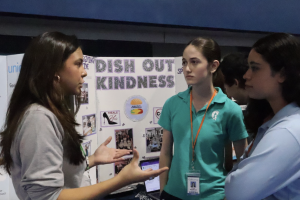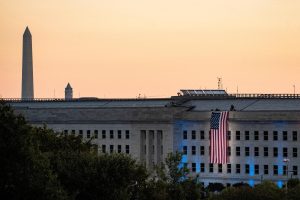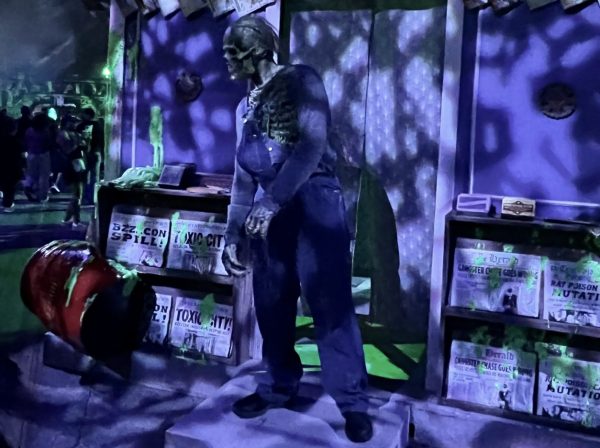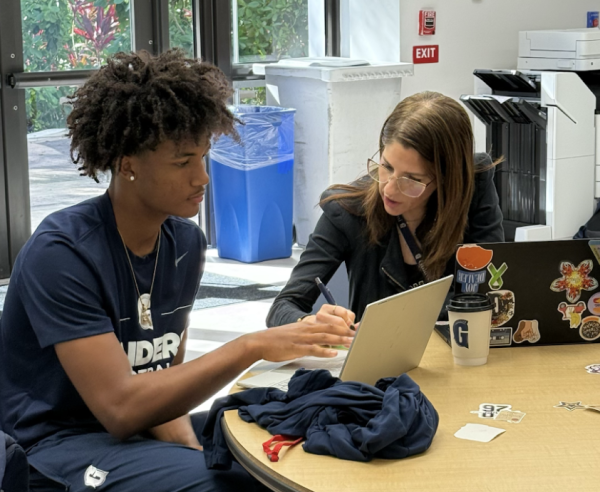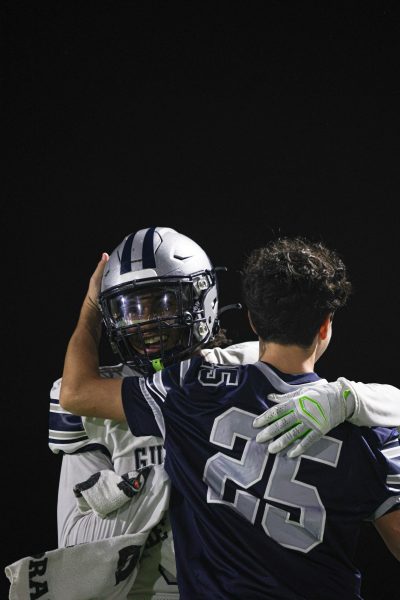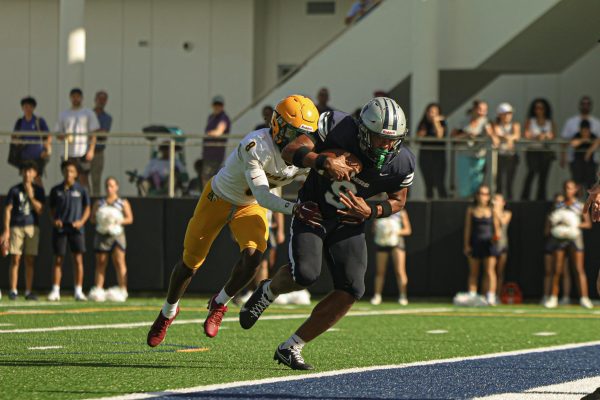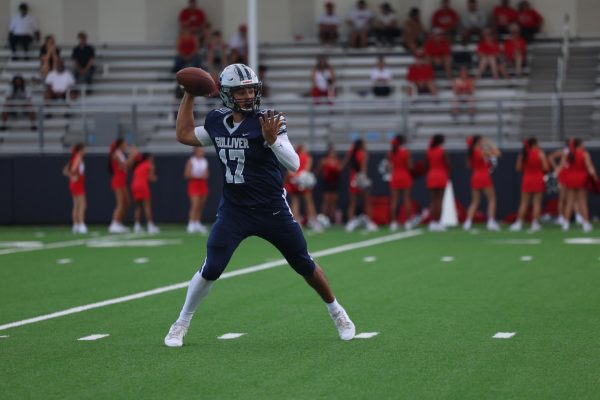Op-Ed | Alarming Decline of Civil Discourse: An Epidemic Corroding the Walls of the Classroom
School children (14-18) raising hands in class. Lack of civil discourse in the classroom causes serious concerns for Generation Z.
October 6, 2021
Remember the times in Kindergarten where that one kid refused to befriend you because you didnŌĆÖt like pizza, or your favorite animal wasnŌĆÖt a T-Rex? Me too.
There is a misconception that this universal phase naturally goes away as people are taught to respect each otherŌĆÖs differences, and you are suddenly friends with everyone and everyone lives happily ever after.┬ĀNot quite. Posing as a threat to democracy, a seemingly juvenile habit has now infiltrated young-adult society; a kindergartenerŌĆÖs reality is a microcosm for the current state of our world.┬Ā┬Ā┬Ā
According to the Pew Research Center, the partisan gap has now stretched over 36%. The article states that ŌĆ£what is striking is how little common ground there is among partisans today.ŌĆØ As evident as it is through the media and how horribly we treat each other, American culture has grown more divisive by the day, and the partisan gap directly reflects this epidemic. The problem is fear. We are so afraid of each other and are often so concerned with being ŌĆ£politically correctŌĆØ that civil discourse is now considered offensive in many ways.┬Ā┬Ā
Currently, we are so hell-bent on the divide that we are unwilling to listen to each other, and even worse, the situation can make us come to believe that our own views are worthless. Consequently, this behavior on part of the gap has trickled down to our nationŌĆÖs youth, invading the classroom walls. It is extremely difficult to find classmates who feel comfortable enough to have civil political discussions, without referring to the default extremes: to the right, you are a spineless socialist; and to the left, you are an unrelenting white supremacist.┬Ā
The corruption of civil discourse is breeding a generation rooted in intolerance. TomorrowŌĆÖs leaders will know nothing but to fear and dismiss anyone with opposing views. High school or college humanities teachers are afraid to initiate debates over controversial political topics for fear of impropriety, the new boogie man. Thus, precipitating a petrified generation afraid of having controversial discussions, vital to sustaining civility.┬Ā┬Ā
Students on either side of the spectrum fear one another, and do not question why others possess their beliefs, a new form of warfare. What needs to happen, immediately, is the introduction of controversial topics to class discussions. Conversations that forbid students from cowering behind the shield of a phone screen. As David Bornstein commented in The New York Times, ŌĆ£Can you get outside your echo chamber enough to actually get curious? Moving from ‘I know everything about them ŌĆö theyŌĆÖre jerks’ to ‘I wonder what theyŌĆÖre saying about this’ is huge.ŌĆØ┬Ā
We are one country, and this divide is tearing the very flesh of our democracy. Dialogue without fear has to happen, otherwise it will consume the very soul of this nation. What needs to happen ŌĆö fast ŌĆö is the cyclical introduction of class discussions on controversial topics: ones that push students out of their comfort zones, ones that donŌĆÖt allow students to cower behind the shield of a phone screen. Let students ŌĆö respectfully ŌĆö disagree with each other and be forced to think.






